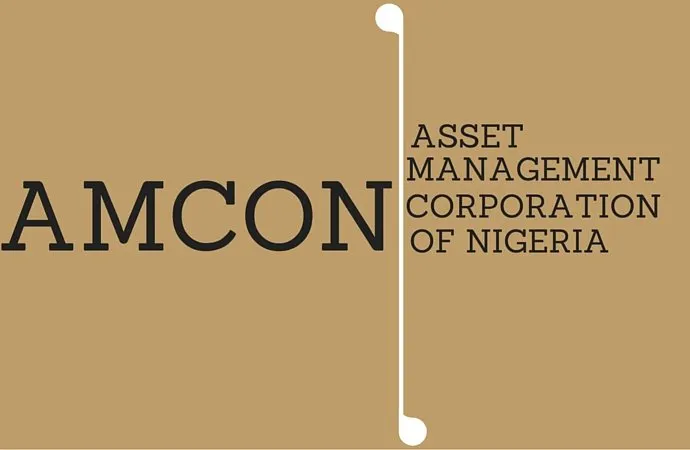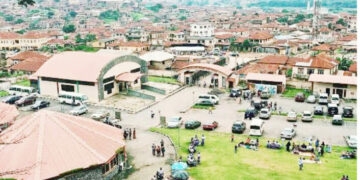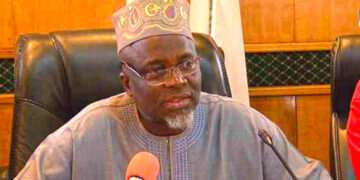Several conflicting orders by courts across the country are hampering N5trillion debt recovery activities embarked upon by the Assets Management Corporation of Nigeria (AMCON), LEADERSHIP learnt.
AMCON, as it stands, is being owed N5trillion from its intervention in several companies since its inception.
The agency is expected to recoup debt owed the companies it intervened in their cases, but little progress has been achieved in this exercise so far, as the duration of court cases of those it took to court seem to have affected debt recovery effort negatively. This is despite all efforts put in place by the agency to ensure speedy debt recovery.
Similarly, in the past where judgements have been passed in favour of AMCON, the companies involved, in some cases, will either appeal the case or move the case to a higher court, thereby slowing down the pace of the agency’s debt recovery quest.
Confirming this development at the weekend, AMCON said its debt recovery mandate has been made tedious by the several conflicting orders by courts in the country.
This is as even as the House of Representatives said it would summon the Inter-agency Committee charged with investigating the recovery of the N5 trillion outstanding debt owed AMCON.
Speaking at a retreat at the weekend, the chairman, House of Representatives Committee on Banking and Currency, Victor Nwokolo, said it was sad that agencies of the federal government work at cross-purposes rather than collaborating to ensure that they support the federal government and its economic recovery after the coronavirus (COVID-19) pandemic had dealt a deadly blow on Nigerian economy and the global community.
In September of 2019, Vice President Yemi Osinbajo inaugurated an Inter-agency Committee to speedily resolve the challenges in recovering over N5 trillion AMCON debts. Osinbajo, who inaugurated the committee at the Presidential Villa, Abuja, had tasked its members to deploy their expertise in the assignment to ensure that AMCON meets its mandate within a reasonable timeline.
Members of the committee include heads and representatives of agencies such as the Independent Corrupt Practices Commission (ICPC), the Economic and Financial Crimes Commission (EFCC), and the Nigerian Financial Intelligence Unit (NFIU).
Others were heads of the Central Bank of Nigeria (CBN), the Nigeria Deposit Insurance Corporation (NDIC), the Federal Ministry of Justice and AMCON.
They were expected to review the status of the huge debts owed to AMCON, deliberate on practical, legal and other strategies for the recovery of the outstanding debts. The committee is chaired by Prof. Bolaji Owasanoye (SAN), the ICPC chairman.
Nwokolo speaking at the retreat said: “We cannot continue like this because we are answerable to the people of Nigeria and our constituencies as lawmakers. They will hold us accountable if we fail to take decisive actions that would help AMCON to recover these huge outstanding debts.”
According to him, ministries, departments and agencies of the government are supposed to work in sync to ensure that nobody shortchanges the federal government, but that “from reports we get from AMCON, it is obvious that they are facing frustrations from not just the obligors but from the judiciary, as well as ministries, departments and agencies of the federal government. There is no reason why that should happen in a decent country.”
On his part, AMCON managing director, Ahmed Kuru who was represented by group head, Asset Management Directorate, Mr Matthew Coker, told the lawmakers that despite the special powers as provided by the Act, AMCON still struggles with the implementation due to the judicial system.
He said: “Honorable members, the Corporation’s recovery processes at this point mainly depends on the Judiciary i.e., obtaining possessory orders or orders for sale. The slow pace of our court processes and sometimes conflicting orders by the courts, especially at the Federal High Court (FHC), which is our court of first instance, frustrates the recovery process. There are delays in obtaining dates in the court to hear AMCON matters.
“Deposit of judgement sum as provided for in the Act is not enforced by the courts, some of the obligors are still active contractors of the government. They carry out businesses with government with debtor company names or other pseudo names and the BOFIA Act that provided for a Special Tribunal on recovery and enforcements would have hastened the adjudication of our matters in court if the Judiciary had constituted a task force specifically in that regard,” he concluded.





